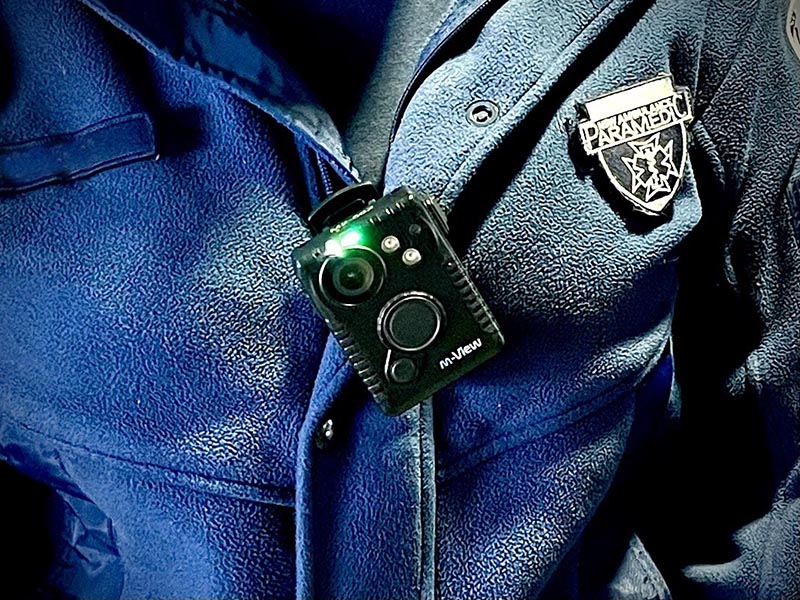

Hospital security body camera trial
The NSW Government will undertake a 12-month trial of body worn cameras for security staff at Wyong hospital to improve safety for staff, patients, and visitors.

3 July 2024
WYONG Hospital will be among nine across the state to assess whether the technology is effective at helping deter and de-escalate incidents in public hospitals.
Up to 300 body worn cameras will be in operation across the trial sites to test whether they are an effective tool for security staff to help prevent and manage violent situations, as well as potentially collect vision that could be used as evidence in prosecutions.
David Harris Member for Wyong said, “Planning work is currently underway to ensure privacy and security processes are in place to support the commencement of the body worn camera trial for security staff in public hospitals as soon as possible.”
“The use of body worn cameras will be done in a way that ensures the management of patient and staff privacy, with scenes only recorded if security officers believe there is a risk of harm to staff, patients, or others”, said Mr Harris.
The trial will be independently evaluated once completed.
NSW Health facilities have a number of key strategies in place to ensure the safest possible environment for staff, patients and visitors. The types of security arrangements include:
*Ongoing risk assessments to identify and manage emerging security risks.
Safety huddles to share information on patient related safety risk with incoming workers.
Patient management plans that set out specific arrangements to keep both the patient and healthcare workers safe when providing care.
Multi-disciplinary Code Black (duress) response teams. This includes the use of NSW Health security staff/Health and Security
Assistants to assist clinical staff with the management of incidents.
Workplaces designed to enhance line of sight for staff, including dual egress at staff stations and in treatments rooms.
Lockdown arrangements including secure entry points between public and clinical areas and secure perimeters for facilities, particularly after hours.
Personal mobile and fixed duress alarms for staff to ensure they can summon assistance when necessary.
*Closed circuit television (CCTV) and effective lighting to ensure visibility.
Procedures to enhance car park security, including regular security patrols.
This trial is part of the ongoing implementation of recommendations from the Anderson Review of Hospital Security. It follows implementation of other recommendations to improve hospital security including the establishment of the Safety and Security Improvement Unit within the Ministry of Health; the standardising of code black procedures; and the enhanced support from Government for the role of patient experience officers.
NSW Health continues to monitor the implementation of the recommendations, which is currently at 97 per cent.
Minister for Health Ryan Park said, “The safety of our healthcare staff and patients is a priority and the NSW Government has a zero-tolerance approach to violence and aggression in our public hospitals.
“The body worn camera trial is one of several actions NSW Health has taken to address the recommendations of the Anderson report and demonstrates our ongoing commitment to continuing to improve security practices to keep staff and patients safe.”







.jpg?crc=4257584689)










_web.jpg?crc=282450513)



